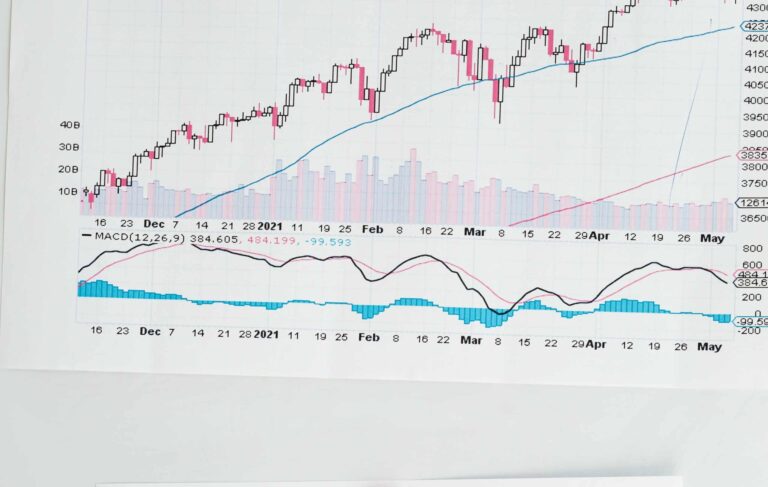Economic growth is an important concept for modern economies. It is the increase in the goods and services produced by an economy over a long period of time.
It is measured as a percentage increase in the Gross Domestic Product (GDP) adjusted for inflation.
Table of Contents
Measuring economic growth
Economists have a range of tools at their disposal to determine the pace of economic growth. One of the most widely used measures is Real Gross Domestic Product (Real GDP). This provides an insight into the overall value of all goods and services produced within a country.
To account for fluctuations in the economy due to inflation, the figure is adjusted to present a real picture of the economy’s growth. Understanding how Real GDP is calculated is essential for analyzing economic trends.
The following are methods for calculating Real GDP. Each providing a different perspective on the economy’s performance. These include:
Income approach
This approach analyzes the total income generated in an economy. It looks at the sum of all wages, rent, interests, and profits earned by individuals and businesses in a given time period.
This approach provides a comprehensive view of the economic activity in a country. It does not account for changes in the distribution of income among different groups.
Expenditure approach
This approach measures economic growth by analyzing an economy’s total spending. It looks at the sum of all consumer spending, investment spending, government spending, and net exports.
This approach gives a picture of the demand side of the economy and how much spending is driving economic growth. However, it may not accurately reflect the changes in the overall level of economic activity.
Output approach
This approach measures economic growth by analyzing an economy’s total output or production. It looks at the value of goods and services produced within a country’s borders. This approach is considered to be the most accurate measure.
It reflects the actual changes in the level of economic activity. However, it does not account for changes in the quality of the goods and services produced, making it a limited indicator of overall economic progress.
The factors of economic growth
To sustain economic growth, it’s imperative to enhance both the quality and quantity of the factors of production. These factors form the building blocks of an economy and play a crucial role in determining its success.
The five key factors of production are natural resources, labor, capital, entrepreneurship, and technology. They interact and interconnect to drive growth, leading to lower production costs, higher wages, and improved living standards.
Natural resources
Natural resources refer to the raw materials and energy sources that are available for economic production. The availability and quality of natural resources can significantly impact a country’s economic growth.
For example, countries with abundant oil reserves often experience rapid growth as a result of high demand for oil and gas.
Labor
The availability and quality of labor are critical factors. A well-educated and skilled workforce can increase productivity and lead to higher economic growth.
The participation of women in the labor force, the level of labor protection and social benefits, and the flexibility of the labor market can also impact the rate.
Capital
Capital refers to the financial resources and investments that are used to finance economic activities. The level of investment in an economy, both domestic and foreign sources, is crucial in determining economic growth.
The availability of credit, the stability of the financial system, and the ease of doing business also play an important role in promoting economic growth.
Technology
Technology is an important driver of growth. Advances in technology can lead to increased efficiency, improved productivity, and lower costs.
The development of new technologies, the ability to adopt and utilize existing technologies, and the level of investment in research and development can greatly impact a country’s economic growth.
Entrepreneurship
Entrepreneurship refers to creating and developing new businesses and industries. Entrepreneurs bring new ideas, products, and services to the market, creating jobs and boosting economic growth.
A supportive environment for entrepreneurship, including access to capital, the protection of property rights, and a favorable tax regime, can be critical in promoting economic growth.
Benefits of a steady economic growth
Economic growth is a crucial aspect of a country’s overall development, bringing numerous benefits to individuals and society as a whole. Some of the key benefits of economic growth include:
- increased job opportunities. It creates new jobs and industries, reducing unemployment and improving the labor market;
- it raises wages and increases the availability of goods and services, improving the standard of living for individuals;
- it increases tax revenue, providing governments with the funds needed to invest in public goods and services such as healthcare, education, and infrastructure;
- with a growing economy, banks, and financial institutions are more likely to lend, making it easier for individuals and businesses to access credit;
- it provides governments with the resources needed to invest in public goods and services, improving the quality of life for citizens;
- it attracts foreign investment, bringing new ideas, capital, and technology to the country and providing a boost to the economy;
- improved trade relations: it strengthens trade relationships between countries, increasing exports and imports and fostering economic interdependence.
Growth is a vital aspect of a country’s development and prosperity
The benefits of economic growth are numerous and far-reaching, from increased job opportunities and improved standard of living to higher tax revenue and reduced poverty.
Understanding the factors that drive it is essential for promoting and maintaining a strong and thriving economy. The benefits of economic growth are evident and can lead to a brighter future for individuals, communities, and nations.
Read also: The most profitable industries worldwide












